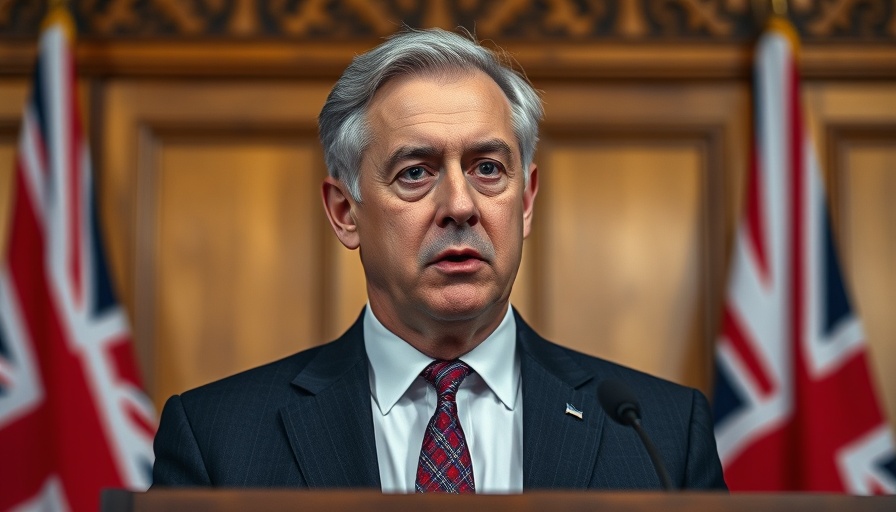
Keir Starmer's Call for Action on Ukraine Ceasefire
In a significant shift towards peace, UK Prime Minister Keir Starmer announced that Ukraine's supporters are entering the "operational phase" in ceasefire planning amidst three years of ongoing conflict. After a conference involving various allies, including NATO and the European Commission, Starmer emphasized the urgency of achieving a ceasefire collaboratively and called on Russia to begin negotiations immediately.
Breaking Down the Coalition's Strategy
Starmer expressed that the coalition of nations, including Canada and Australia, must be prepared to push for a peace deal, illustrating a united front against Russia's delays in peace discussions. The complex relationship between Kyiv and Moscow has led to deep mistrust, reflected in Starmer’s blunt communication that the time to act is now, urging, "Let the guns fall silent." The sentiment reverberates through the latest discussions about the proposed 30-day ceasefire suggested by the US, aimed at halting violence temporarily to explore more substantial peace negotiations.
The Discourse on Security Arrangements
At the heart of this ceasefire initiative lies the question of security for Ukraine. Observers note the importance of ensuring that any pause in hostilities does not simply empower Russia, allowing it to regroup militarily. As highlighted by officials, any peace must be underpinned by strict agreements on Ukraine's sovereignty and military capabilities. Starmer's comments reflect a recognition that the international community must maintain pressure on Moscow to agree to a ceasefire that is not only immediate but also comprehensive and lasting.
Challenges Ahead: Analyzing Putin’s Position
Despite advancements in ceasefire discussions, skepticism regarding Russian President Vladimir Putin’s intentions lingers. Historical context shows that similar negotiations have previously faltered, with analysts warning that without concrete terms established before a ceasefire, Ukraine may face disadvantages if Russia seeks to exploit any temporary lull in aggression. The expectation that a prolonged negotiation process will yield favorable terms remains a critical focus for Ukraine’s future security.
The Role of International Players
International reactions, particularly from the US and European allies, play a pivotal role in shaping the diplomatic landscape. As referenced by figures in Washington, these discussions are integral to maintaining international support while ensuring Kyiv receives the aid necessary for its defense. However, faith in the ceasefire as a legitimate path to peace can only flourish with transparency and strong commitments from all parties involved.
Looking Forward: Hope or Hesitance?
As the world watches and waits for Russia's response to the proposed ceasefire, the outcomes of past negotiations loom large in the minds of politicians and civilians alike. Starmer’s assertive tone aims to inspire cohesion among Ukraine's backers, yet the path to lasting peace will undoubtedly require more than declarations; it necessitates profound structural changes in how international diplomacy interacts with ongoing conflicts.
Ultimately, while the ceasefire discussions represent a crucial step towards peace in Eastern Europe, they also unearth the complexities of international relations where trust, strategy, and accountability intersect. The situation embodies the critical necessity to not only hope for a ceasefire but to prepare for the underlying challenges that will dictate the state of East-West relations for years to come.
To stay informed on further developments about the Ukraine ceasefire negotiations and their impacts, consider engaging with local and international news, as these discussions continue to evolve.
 Add Row
Add Row  Add
Add 



Write A Comment